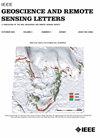基于增强注意模块的遥感图像场景分类
IF 4
3区 地球科学
Q2 ENGINEERING, ELECTRICAL & ELECTRONIC
引用次数: 49
摘要
不同卫星遥感场景的分类是遥感图像解译领域中一个非常重要的子任务。随着卷积神经网络(cnn)的发展,遥感场景分类方法不断完善。然而,由于遥感图像场景背景复杂,场景中经常出现许多小物体,因此基于cnn的识别方法的使用具有挑战性。为了提高深度神经网络的特征提取和泛化能力,使其能够学习更多的判别特征,本文设计了一个增强的注意模块(enhanced attention module, EAM)。我们提出的方法在NWPU-RESISC45上取得了非常有竞争力的性能——准确率为94.29%,在不同的遥感场景识别数据集上取得了最先进的性能。实验结果表明,该方法能够学习到比现有方法更多的判别特征,有效地提高了遥感图像场景分类的精度。我们的代码可在https://github.com/williamzhao95/Pay-More-Attention上获得。本文章由计算机程序翻译,如有差异,请以英文原文为准。
Remote Sensing Image Scene Classification Based on an Enhanced Attention Module
Classifying different satellite remote sensing scenes is a very important subtask in the field of remote sensing image interpretation. With the recent development of convolutional neural networks (CNNs), remote sensing scene classification methods have continued to improve. However, the use of recognition methods based on CNNs is challenging because the background of remote sensing image scenes is complex and many small objects often appear in these scenes. In this letter, to improve the feature extraction and generalization abilities of deep neural networks so that they can learn more discriminative features, an enhanced attention module (EAM) was designed. Our proposed method achieved very competitive performance—94.29% accuracy on NWPU-RESISC45 and state-of-the-art performance on different remote sensing scene recognition data sets. The experimental results show that the proposed method can learn more discriminative features than state-of-the-art methods, and it can effectively improve the accuracy of scene classification for remote sensing images. Our code is available at https://github.com/williamzhao95/Pay-More-Attention.
求助全文
通过发布文献求助,成功后即可免费获取论文全文。
去求助
来源期刊

IEEE Geoscience and Remote Sensing Letters
工程技术-地球化学与地球物理
CiteScore
7.60
自引率
12.50%
发文量
1113
审稿时长
3.4 months
期刊介绍:
IEEE Geoscience and Remote Sensing Letters (GRSL) is a monthly publication for short papers (maximum length 5 pages) addressing new ideas and formative concepts in remote sensing as well as important new and timely results and concepts. Papers should relate to the theory, concepts and techniques of science and engineering as applied to sensing the earth, oceans, atmosphere, and space, and the processing, interpretation, and dissemination of this information. The technical content of papers must be both new and significant. Experimental data must be complete and include sufficient description of experimental apparatus, methods, and relevant experimental conditions. GRSL encourages the incorporation of "extended objects" or "multimedia" such as animations to enhance the shorter papers.
 求助内容:
求助内容: 应助结果提醒方式:
应助结果提醒方式:


